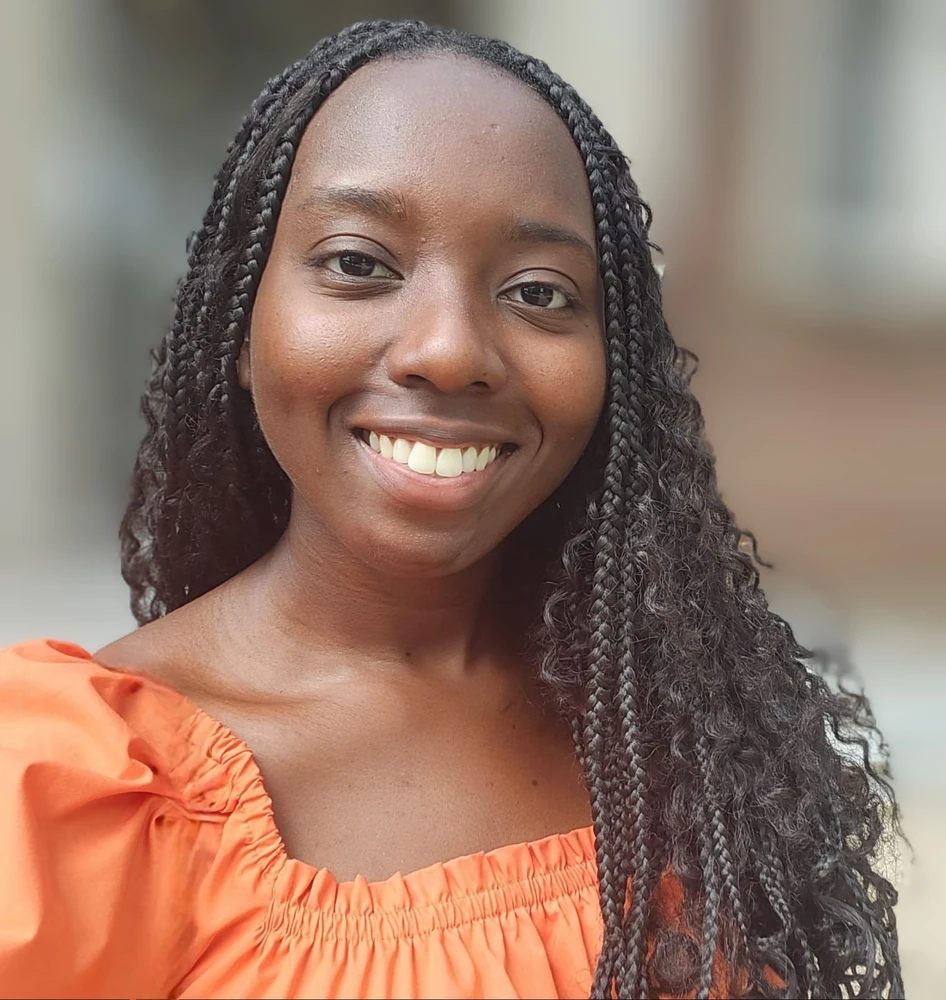
This fall, the Department of History is excited to welcome Chelsey Smith as an assistant professor. Smith is a historian of nineteenth-century Jamaican history and her research interests include education, race, and labor in the Caribbean and Latin America.
For Smith, History at Illinois felt like the “perfect fit” and she was impressed by the mentorship and resources we provide to junior faculty members. On her first visit to campus, she was charmed by the similarities in the landscape between Champaign-Urbana and her hometown in Arkansas. The decision to begin her career at Illinois was a “no-brainer.”
From mentee to mentor
Mentorship has played a key role in Smith’s career and the mentors she’s had throughout her life guided her on her path to becoming a historian. This past summer, she had the opportunity to meet key historians in her field at the Association of Caribbean History Conference, where she presented a paper about formal and informal teaching and learning in Jamacia during the nineteenth-century. It was a pivotal moment in her career that solidified the importance of her work researching the history of education in the Caribbean and energized her to give that encouragement back to her students.
“Some of the most important historians in the field of Caribbean history were there. And they were all so down to earth, so easy to talk to, and very encouraging of the young scholars,” she said. “It made me even more excited for this work because you realize so many people care just as much as you and they want to see you succeed. And I can’t wait to start pouring that back into the students. I’m really looking forward to teaching so I can also start making those relationships with students here.”
Exploring health, education, race, and labor in the Caribbean
Smith is currently working on an article about cholera in Jamaica in the 1850s and revising her dissertation into a book. Her first article, “What is for me is not for my Master,” focusing on land and labor in the apprenticeship period in Jamaica was published last year in the New West Indian Guide.
Smith’s dissertation used education as a lens to understand the lives of Afro-Jamaicans in the first decades after abolition as they navigated obtaining land, voting, and citizenship rights. She examines the role of missionary schools for both children and adults, and how the missionaries acted as what she calls partial allies to free people. She charts how education created opportunities for Afro-Jamaicans but was also a tool the British empire used to control formerly enslaved people. She’s spent the past year exploring how she hopes to revise the dissertation into a book, including adding a chapter on education for indentured immigrants and their children in Jamaica. Next year, she hopes to visit archives in Jamaica and the United Kingdom to conduct further research.
Public engagement in the classroom
Previously, Smith was a public humanities post-doctoral fellow in the Department of History. The College of LAS Public Humanities Fellow program was a unique opportunity for Smith to explore a public engagement project with the Humanities Research Institute that she will continue to work on as a faculty member.
For her project, she will create a course that teaches students how to create public history projects. In the first half of the semester, students will learn about different public history methods such as podcasts created by historians and work in museums. In the second half, she will guide students through the creation of their own public history projects. She also hopes to publish an article about the experience in a public history journal so she can give back to the field and share what she and her students learned during the course.
This fall, she’s teaching HIST 100: Global History and will focus on the period of 600 to 2000. It’s a popular gen-ed course for the department that can be an entry point into the major. She’s looking forward to the challenge of teaching a large period in a short time frame and is particularly excited to teach about the Haitian Revolution in the context of global history, which some students haven’t learned about before.
In the spring she’ll teach HIST 200: Introduction to Historical Interpretation and a course on Caribbean history. She hopes to teach students about indigenous cultures before European encounter, the U.S.’s involvement in the Caribbean and the importance of the region in world history.